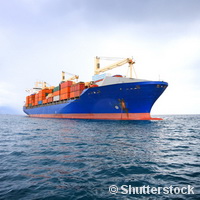How to treat ship wastewater efficiently and effectively
Ship-source polluting discharges constitute a criminal offence under EU law, with operators facing increasing scrutiny. Even the discharge of bilge water - seawater that collects in a ship and must be pumped out - has to be done within tight regulations, as it often mixes with oil and toxic chemicals. The answer, according to OILECLEAR, an EU-funded project started in 2012, is to develop a fully automatic, complete stand-alone bilge water treatment unit for ships and rigs, capable of separating emulsified oil from water via a novel three-phase separator design. This will enable operators to confidently meet current and future bilge and slop water regulations with regard to oil hydrocarbons (THC), dissolved organics and toxic metals. Indeed, the overriding goal is to enable ships and rigs exploring offshore for oil and gas - the primary target markets for the OILECLEAR system - to meet all current and expected regulations regarding oil-in-water. The potential impact of the project is huge because bilge water is common to all ships. It tends to consist of a varying assortment of oil and grease, oxygen-demanded substances, and organic and inorganic materials including volatile organic compounds, semi-volatile organic compounds, inorganic salts and metals. Current regulations put limitations on the discharge of this oily water at 15 ppm (parts per million) of THCs, while sensitive areas can have more stringent requirements. OILECLEAR is developing a bilge water system that meets a THC standard of 5 ppm. The process will be optimised and automated, providing a system to end users that can be easily operated and maintained. The OILECLEAR system works by separating emulsified oil and water by use of a novel separator design. The main features / components of this are a self-rinsing and adjustable electrolysis cell, a combined floatation and sedimentation sludge separation unit, an explosion proof design and an all-enclosed gas phase design. The innovation also features off-gas catalytic treatment for minimum air contamination and an alarm which cuts off effluent if the effluent level becomes too high. Effluent data and operation will be integrated with process control by using ultrasound measurement of flow and particles and automatic logging and monitoring of THC by UV-fluorescence. The project, which is due for completion towards the end of 2014, is being coordinated by Westmatic AB (Sweden). As an electrode cell and separation unit technology provider, this company will, post-project, sell the fully integrated systems and service to the market. Other project partners include IMU-TEC OY (Finland), NaCoM AS (Norway) and LE Stena Line (Sweden), which is contributing end user requirement guidance. EU funding has been received to the tune of 1 149 000.For more information, please visit: OILECLEAR www.oileclear.com Project factsheet
Countries
Sweden



